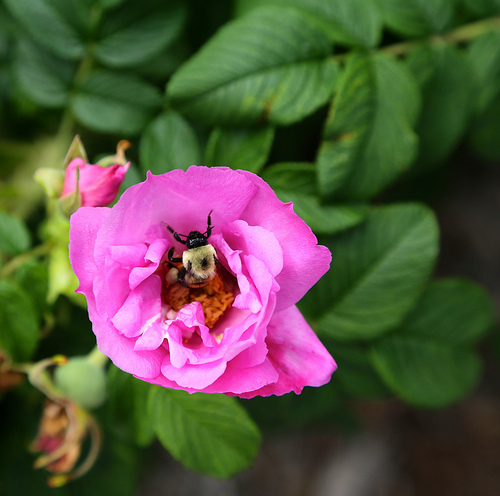“Every Third Bite Requires a Pollinator” So What Happens When the Bees are Gone?
Habitat for pollinating insects is vanishing but homeowners can help make a big difference

Spring is officially here and gardeners are pondering what to plant this year. One of the new trends in gardening is finding ways to help bees and other pollinators. Development and other factors continue to reduce the space for pollinating related plants like Milkweed. WDET’s Amy Miller spoke with Master Gardener Rhonda Fleming Hayes. She is the author of a new book called Pollinator Friendly Gardening. Hayes says insects that pollinate are essential to the health of the world food systems. A few key points:
* Since 2006, beekeepers have averaged 33% loss of hives annually. There is always some winter kill, but this kind of loss is exceptional
* The crops that bees pollinate are worth more than $200 billion a year
* Without bees we can’t have almonds, watermelons, cherries, tomatoes, peppers, blueberries and many more delicious fruits and vegetables.
* Sixty years ago there were 6 million managed honeybee colonies (hives), now there are only 2.5 million
To hear the entire interview, click the audio link above
